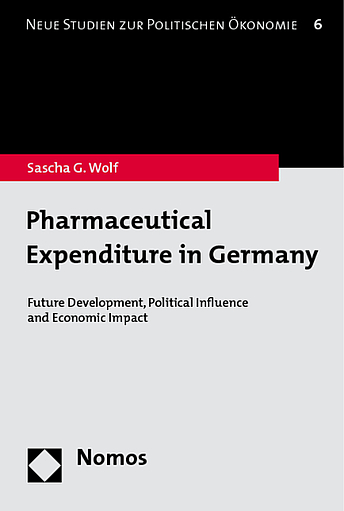englischIn the last three decades, several health care reform acts have targeted the pharmaceutical sector of the German Statutory Health Insurance System. But so far the established regulatory framework has failed to stop the growth of drug expenditure. This book tries to find explanations for the cost development and to give suggestions for future reforms.
By means of principal component and cluster analysis, groups of pharmaceuticals whose members are characterized by similar demand attributes have been built. Each group has been analyzed by considering the impact of age-dependency and technological progress on consumption. Based on these results, an outlook on future expenditure development until the year 2050 is delivered. Although the main cost drivers are exogenous, politics are able to control the development of disbursements: Econometric tests show that health policy was characterized in the past by politicians’ selfish interests such as partisan and opportunistic behavior. The results of a vertical product differentiation model suggest the introduction of Medical Savings Accounts for achieving more efficiency in drug provision.
Der Arzneimittelsektor der Gesetzlichen Krankenversicherung stand wiederholt im Fokus zahlreicher Gesundheitsreformen. Dennoch ist es bislang nicht gelungen, den Trend steigender Ausgaben nachhaltig zu bremsen. Die vorliegende Untersuchung leistet einen Beitrag dazu, die Ursachen dieser Entwicklung zu erklären und Lösungsansätze aufzuzeigen. Mittels Hauptkomponenten- und Cluster-Analyse wurden Gruppen von Arzneimitteln mit vergleichbaren Konsumeigenschaften gebildet. Jede Gruppe wurde auf den Einfluss der Altersabhängigkeit und des technologischen Fortschritts hin analysiert. Aufbauend auf diesen Ergebnissen wurde eine Prognose der zukünftigen Ausgabenentwicklung bis zum Jahr 2050 erstellt. Obwohl die Hauptkostenfaktoren exogen sind, steht der Gesetzgeber dem vorhergesagten ansteigenden Kostenpfad nicht hilflos gegenüber. Im Gegenteil: Anhand ökonometrischer Tests wird gezeigt, dass die Gesundheitspolitik in der Vergangenheit durch wahl- und klientelorientierte Interessendurchsetzung geprägt war. Mehr Effizienz in der Arzneimittelversorgung könnte durch die Einführung individueller Gesundheitssparkonten erzielt werden. Dies bestätigen die Resultate eines vertikal differenzierten Wettbewerbsmodells.


